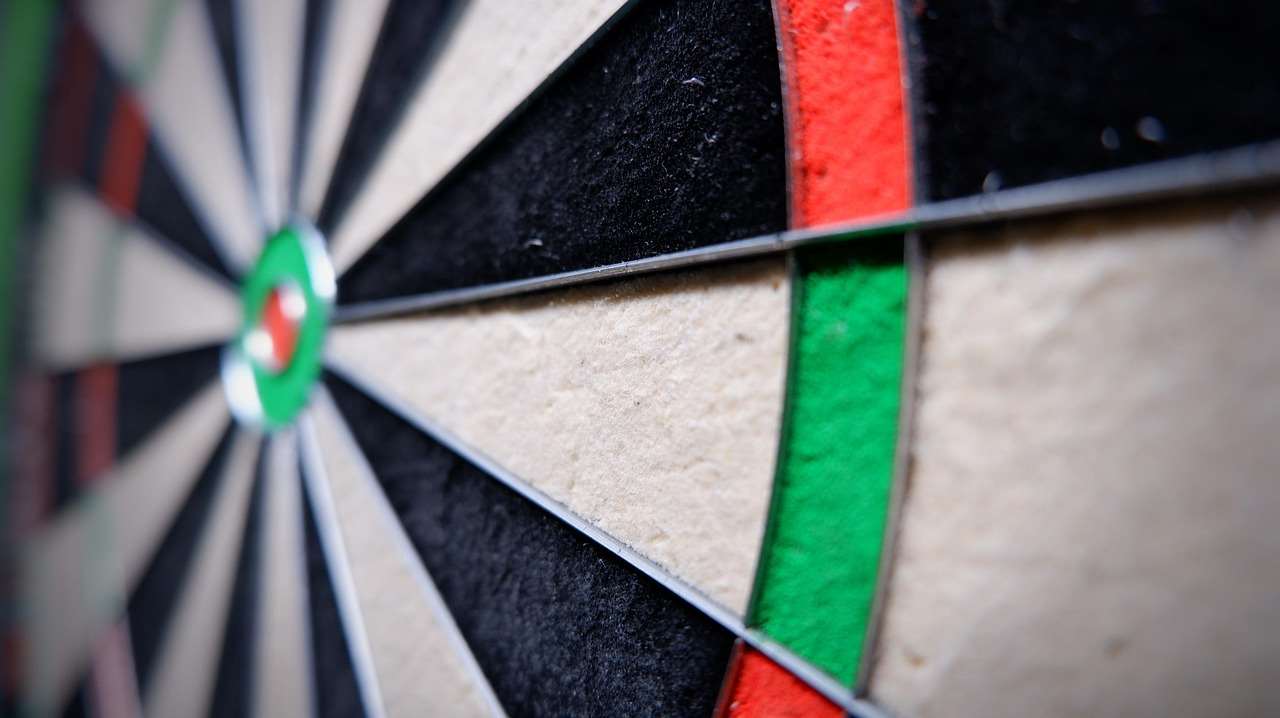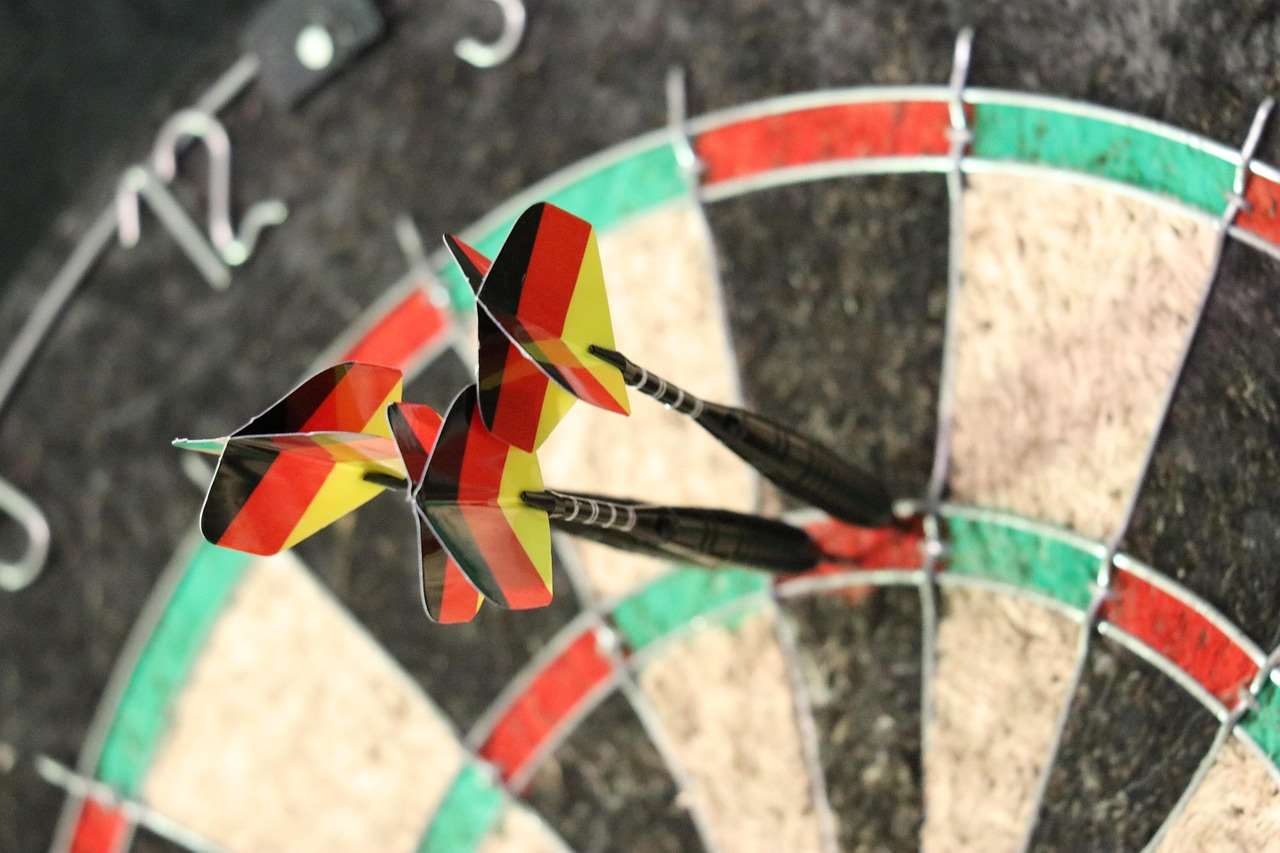Overtraining in darts can significantly hinder your performance, leading to burnout, decreased accuracy, and even injuries. This article will explain how to recognize the signs of overtraining, offer strategies to prevent it, and help you get back on track to improve your game. We’ll also explore related aspects impacting performance like nutrition and mental preparation.
⚠️ Still Using Pen & Paper (or a Chalkboard)?! ⚠️
Step into the future! The Dart Counter App handles all the scoring, suggests checkouts, and tracks your stats automatically. It's easier than you think!
Try the Smart Dart Counter App FREE!Ready for an upgrade? Click above!
The impact of overtraining in darts is often underestimated. Many dedicated players push themselves too hard, believing more practice equals better results. However, this couldn’t be further from the truth. Ignoring the signs of overtraining can lead to a plateau in your skills, or even a decline in performance. Understanding how to prevent overtraining in darts is crucial for consistent improvement and long-term success.
Recognizing the Signs of Overtraining in Darts
Identifying overtraining in darts early is key to preventing serious issues. The symptoms can be subtle at first, easily dismissed as a bad day or a temporary slump. However, persistent symptoms should raise a red flag. Pay close attention to the following:
- Decreased accuracy and consistency: Are your scores consistently lower than usual? Are you missing shots you typically make?
- Loss of motivation and enthusiasm: Do you feel drained and uninterested in practicing or playing?
- Increased muscle soreness and fatigue: Do you experience persistent muscle aches or unusual fatigue, even after a good night’s sleep?
- Irritability and mood swings: Is your temper shorter than usual? Are you experiencing increased anxiety or stress?
- Sleep disturbances: Are you having trouble sleeping or experiencing restless nights?
If you’re experiencing several of these symptoms, it’s a strong indication that you may be overtraining. Ignoring these signals can lead to more severe problems, impacting both your physical and mental well-being. Learning to listen to your body is crucial for preventing overtraining in darts.

Preventing Overtraining in Darts: A Strategic Approach
Prevention is always better than cure. By implementing these strategies, you can significantly reduce your risk of overtraining in darts:
Structured Training Schedule
Avoid intense practice sessions every day. A well-structured training schedule incorporating rest days is essential. This allows your body and mind to recover, preventing burnout. Consider using a periodization approach, cycling between intense periods and lighter weeks, similar to what you might see in dart-specific training for tournaments.
Listen to Your Body
Pay attention to your body’s signals. Don’t push through pain or extreme fatigue. Rest when you need to. Ignoring these signals can exacerbate the problem and prolong your recovery time. It’s better to take a break and return refreshed than to push through and risk injury.
Proper Warm-up and Cool-down Routines
Always begin your practice sessions with a proper warm-up to prepare your muscles and improve flexibility. Similarly, a cool-down routine after practice helps your body gradually return to a resting state, reducing muscle soreness and the risk of injury. You might consider a fitness plan that addresses this as part of a general Darts Fitness Health routine.
Prioritize Sleep and Nutrition
Adequate sleep is crucial for physical and mental recovery. Aim for 7-9 hours of quality sleep each night. A balanced and nutritious diet provides your body with the essential nutrients needed for optimal performance and recovery. Following a healthy lifestyle for dart player potential is a great starting point.

Incorporate Active Recovery
Active recovery involves engaging in low-intensity activities that promote blood flow and reduce muscle soreness. This could include light cardio, stretching, or yoga. These activities aid in recovery without placing excessive strain on your body.
Mental Well-being
The mental aspect of darts is often overlooked. Stress and anxiety can significantly contribute to overtraining in darts. Incorporate relaxation techniques such as meditation or deep breathing exercises into your routine. Seeking professional help from a sports psychologist can be beneficial for managing stress and enhancing mental resilience. This might help your mental preparation for tournament play.
Vary Your Practice Drills
Avoid monotony in your practice sessions. Varying your drills helps prevent boredom and keeps your training engaging. Incorporate different techniques and focus on different aspects of your game to improve different skill areas. By mixing things up, you can maintain motivation and avoid physical burnout.
Understanding the Physiology of Overtraining in Darts
Overtraining in darts isn’t just about mental fatigue; it has a physiological component. When you overtrain, your body doesn’t have enough time to recover and repair itself. This leads to a buildup of stress hormones, muscle damage, and reduced immune function. Understanding this helps you appreciate the importance of rest and recovery.
The repetitive movements involved in throwing darts can put strain on specific muscle groups, particularly in the shoulder, arm, and wrist. Overtraining can lead to muscle imbalances, joint pain, and even tendonitis. Proper technique, warming up, and cooling down are essential to mitigate these risks.
Moreover, the mental aspect of the sport is extremely important. The intense focus required during games and practice can lead to mental exhaustion if not properly managed. Mental fatigue can manifest as decreased concentration, increased irritability, and even emotional burnout. Effective vision training recommendations darts can also improve your performance and reduce stress from overexertion.

Recovery Strategies for Overtrained Dart Players
If you suspect you’re overtrained, the first step is to take a break from intense training. This might involve reducing the frequency and duration of your practice sessions or taking complete rest days. Listen to your body and allow yourself sufficient time to recover. This might involve complete rest from throwing darts for a specified period, depending on the severity of the overtraining.
In addition to rest, consider incorporating active recovery methods, such as light cardio or stretching. This helps improve blood flow and reduce muscle soreness without putting undue stress on your body. Focusing on your ergonomics and accuracy can also be part of your recovery process, ensuring proper posture and technique to reduce strain on your body.
Nutrition plays a vital role in recovery. Ensure you’re consuming a balanced diet that’s rich in protein, carbohydrates, and essential nutrients. This provides your body with the building blocks it needs to repair damaged tissues and replenish energy stores. Consider consulting a nutritionist or sports dietitian for personalized dietary advice.
Adequate sleep is another critical factor in recovery. Aim for 7-9 hours of quality sleep each night. This allows your body to repair itself and restore energy levels.
Finally, consider seeking advice from a healthcare professional, such as a physiotherapist or doctor, if symptoms persist or worsen. They can help diagnose any underlying injuries and recommend appropriate treatment strategies.
The Role of Mental Preparation in Preventing Overtraining
Mental fatigue is often a significant contributor to overtraining in darts. The intense focus and pressure of competition can lead to mental exhaustion if not properly managed. Strategies for managing mental fatigue include:
- Mindfulness and meditation: Practicing mindfulness and meditation can help reduce stress and improve focus.
- Visualization techniques: Visualizing successful throws can enhance confidence and improve performance.
- Positive self-talk: Replacing negative thoughts with positive affirmations can boost motivation and resilience.
- Setting realistic goals: Avoid setting unrealistic expectations and celebrate small victories along the way. This can help to alleviate unnecessary pressure and reduce the risk of overtraining.
Mental preparation is as crucial as physical training. By incorporating mental wellness strategies, you can enhance your resilience to stress and prevent mental burnout. Regularly assessing your mental state and adjusting your training accordingly is essential to prevent overtraining in darts.

Long-Term Implications of Overtraining
Ignoring the signs of overtraining in darts can have significant long-term implications. Chronic overtraining can lead to injuries, burnout, and a decline in performance. It can also negatively impact your overall health and well-being. Recognizing the early warning signs and taking proactive steps to prevent overtraining is essential for maintaining a long and successful career in darts.
The repetitive nature of dart throwing can put stress on joints and muscles, leading to overuse injuries if not managed properly. These injuries can be debilitating and can require significant time off from the sport to heal. To learn more about injury prevention, consult our guide on dart injury prevention learning.
Furthermore, burnout can lead to a loss of motivation and passion for the sport. This can significantly affect your performance and enjoyment of the game. Taking breaks, varying your training, and prioritizing mental well-being are crucial for preventing burnout.
Finally, neglecting your physical and mental health can have wider-reaching consequences. Chronic stress and fatigue can weaken your immune system, making you more susceptible to illness. Prioritizing your well-being is not only important for your darting career but also for your overall health and happiness.

Conclusion: Achieve Peak Performance Through Balanced Training
Overtraining in darts is a serious issue that can significantly impact your performance and well-being. By understanding the signs of overtraining, implementing preventive strategies, and prioritizing recovery, you can avoid this pitfall and achieve your full potential. Remember that consistency and balance are key to long-term success. Listen to your body, rest when you need to, and enjoy the journey. By following these guidelines, you can ensure that your passion for darts remains a source of joy and fulfillment, rather than a cause for stress and injury.
Don’t forget to prioritize your mental health, as it’s just as crucial as your physical training. Consider incorporating mindfulness exercises or seeking professional guidance to optimize your mental well-being, significantly reducing the risk of overtraining and maximizing your performance potential. Alcohol and dart confidence are also something to consider when looking at performance and overall wellbeing.
By understanding the science of proper training and recovery, you’ll not only play better darts but also enjoy a healthier and more fulfilling life. Take control of your training now and prevent overtraining in darts! Start implementing these strategies today and see the difference they make in your game and overall health.
Hi, I’m Dieter, and I created Dartcounter (Dartcounterapp.com). My motivation wasn’t being a darts expert – quite the opposite! When I first started playing, I loved the game but found keeping accurate scores and tracking stats difficult and distracting.
I figured I couldn’t be the only one struggling with this. So, I decided to build a solution: an easy-to-use application that everyone, no matter their experience level, could use to manage scoring effortlessly.
My goal for Dartcounter was simple: let the app handle the numbers – the scoring, the averages, the stats, even checkout suggestions – so players could focus purely on their throw and enjoying the game. It began as a way to solve my own beginner’s problem, and I’m thrilled it has grown into a helpful tool for the wider darts community.